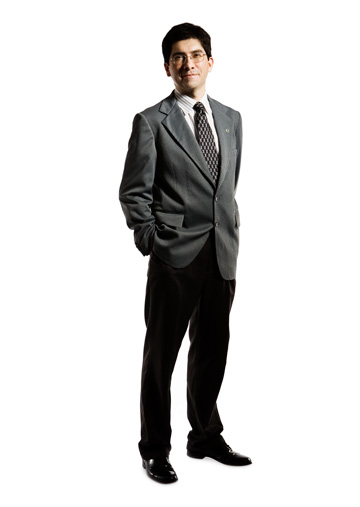Q: How bad is the air in North Texas?
A: It doesn’t meet federal standards. And while it’s not the dirtiest air in the country, it’s not as clean as it should be, and it is in the top group of areas in the country that have levels of ozone that are far in excess of where our new ozone standards are going to be.
Q: A lot was made of your being a scientist appointed to this post. What perspective do you think that brings to the job, coming from an academic post?
A: I understand the differences between the categories of pollutants. That, for me, has been a huge asset. It’s hopefully going to allow me to make better decisions. And I certainly understand some of my limitations. I’m spending a lot of time with attorneys and lawyers to understand some of the legal nuances.
Q: What’s it like to go from being a critic of the regulators to being in charge of the enforcement yourself?
A: On some days, it feels like I’m simply continuing the work I used to do, because in many ways the work I did before relates completely to the work I do now. There are a few high-profile issues that I was involved with in the past where I felt like the agency didn’t push as hard as it should have. But 99 percent of what the agency does never makes it to the newspaper or to the magazines, and the staff here at this agency does fantastic work. I’m more appreciative and more aware of that fact today than I’ve ever been.
Q: There has been some tension between the EPA and the Texas Commission on Environmental Quality (TCEQ). The EPA seems to think TCEQ has been too lenient in granting permits to industry releasing pollutants into the air. TCEQ officials argue that the EPA isn’t giving industry enough leeway to do its
business. Does there have to be tension between what’s good for the environment and what’s good for industry?
A: I don’t think so. You can look back decades that show we can maintain an aggressive approach to public health and the environment, and at the same time we have a standard of living that most of the world would envy. I think that they go hand in hand.
Q: A recent TCEQ report showed that one-quarter of Barnett Shale drilling sites were releasing excessive levels of toxic benzene into the air. Would you live near a natural gas well?
A: I live in the city of Dallas, which doesn’t have any. Would I? I think so. Certainly, natural gas wells themselves can leak, and the drilling and the actual installation of a well can involve a lot of truck traffic and noise and the actual drilling rigs and emission from that. But, in general, once the natural gas well is installed, if it’s maintained and operated properly, it probably will not have any emissions that will be of significance to the surrounding community.
Q: How do you limit your own carbon footprint?
A: In Texas we do have a choice in terms of who our retail electricity provider is, and for a number of years now I’ve chosen one that is 100 percent renewable. I’ve replaced all but two light bulbs in my house with those compact fluorescents. And I have a car that can take E85 ethanol. Both from a carbon footprint standpoint but also nationalism, I’d rather send my dollars to a farmer who is growing corn in Iowa than some overseas oil sheik. And I’m kind of a nut in terms of recycling in my house.





